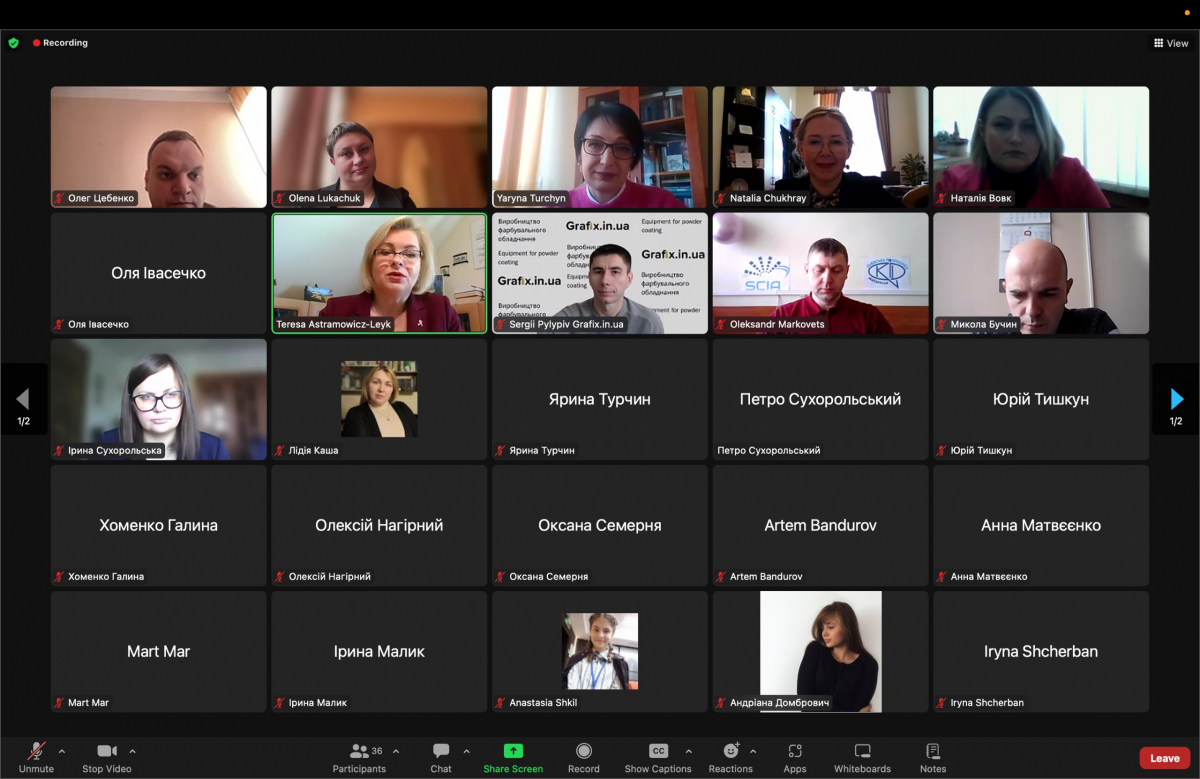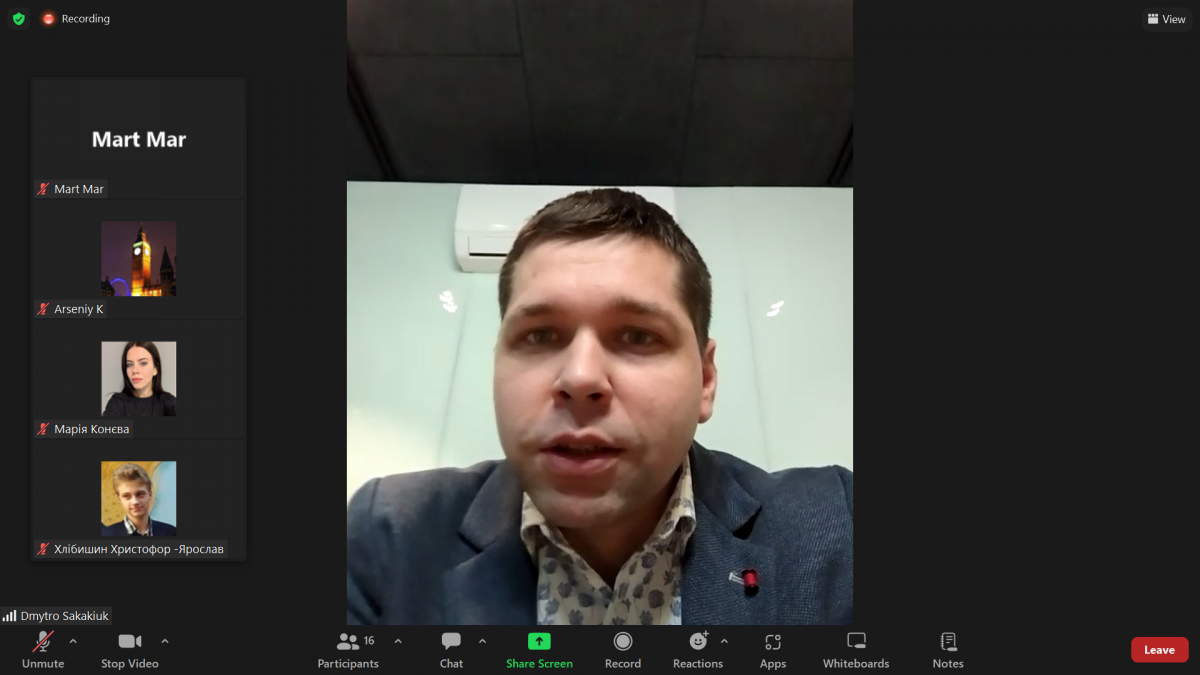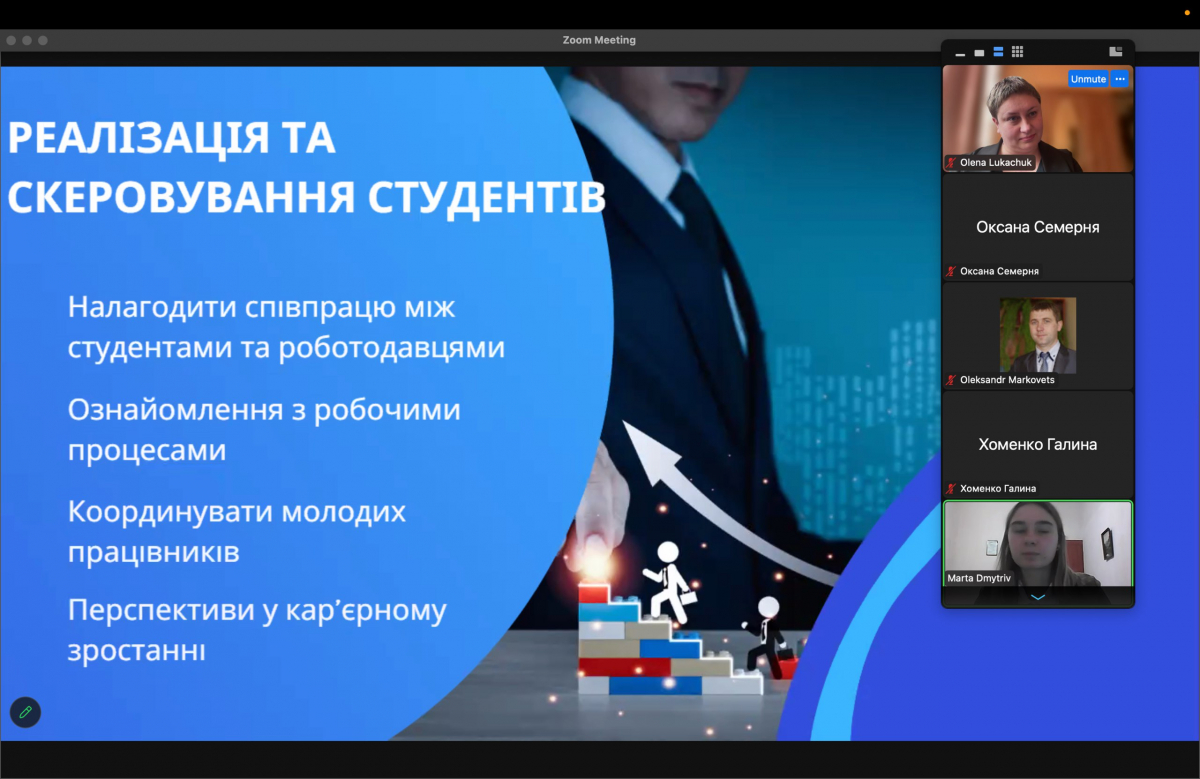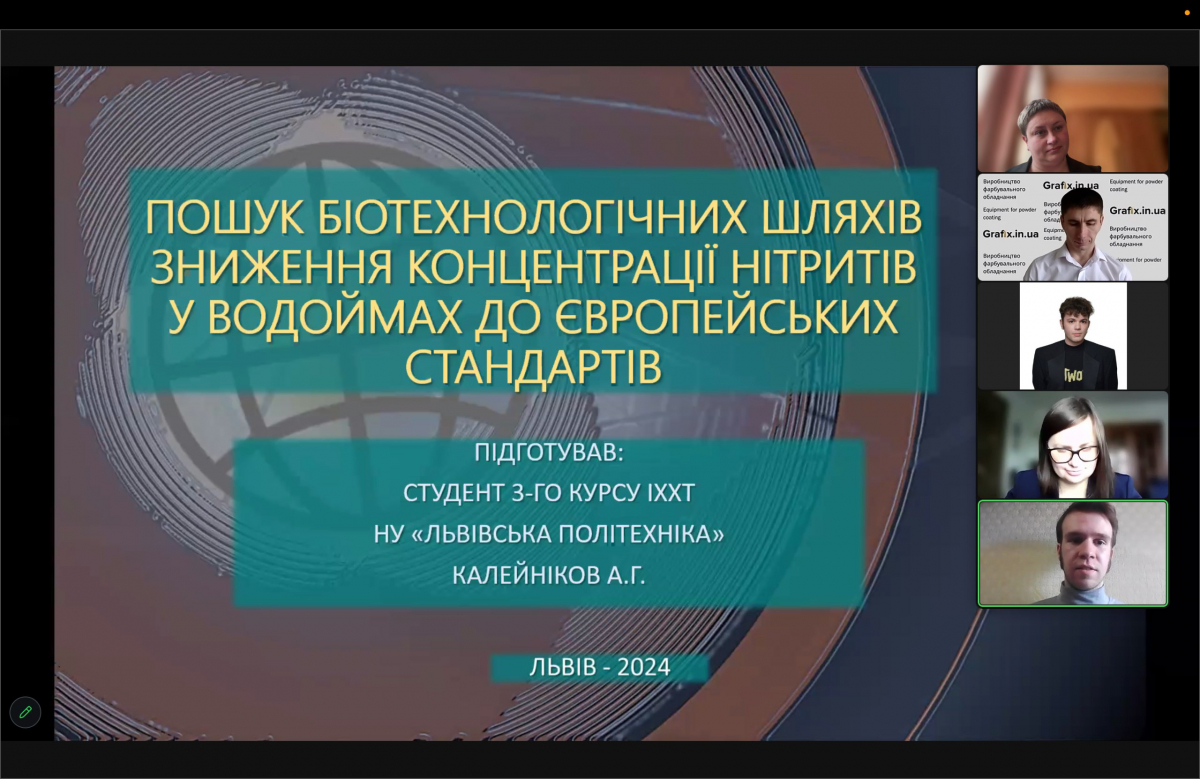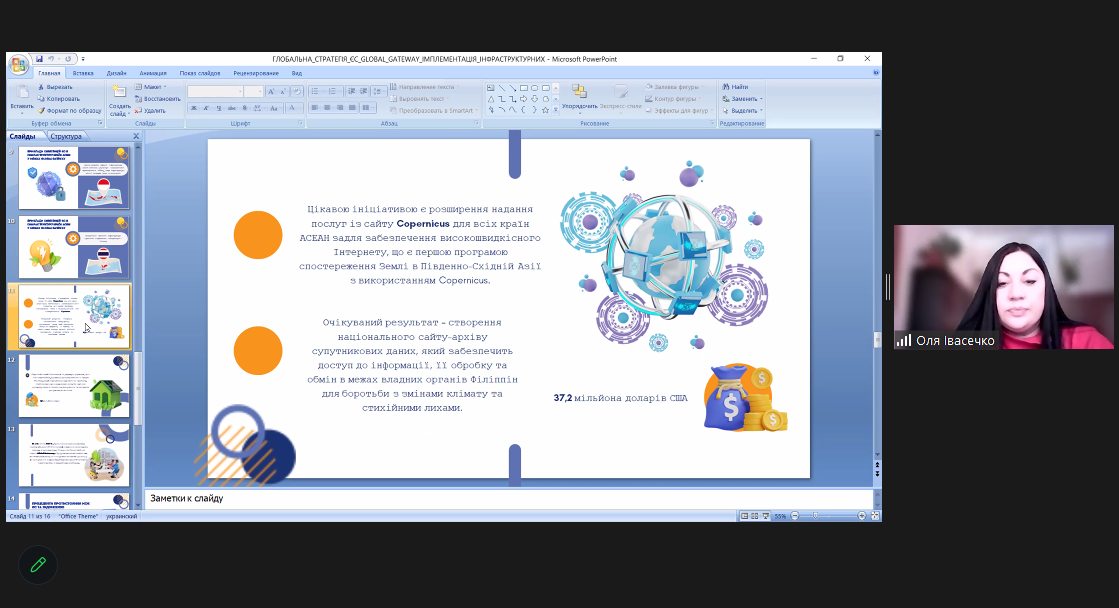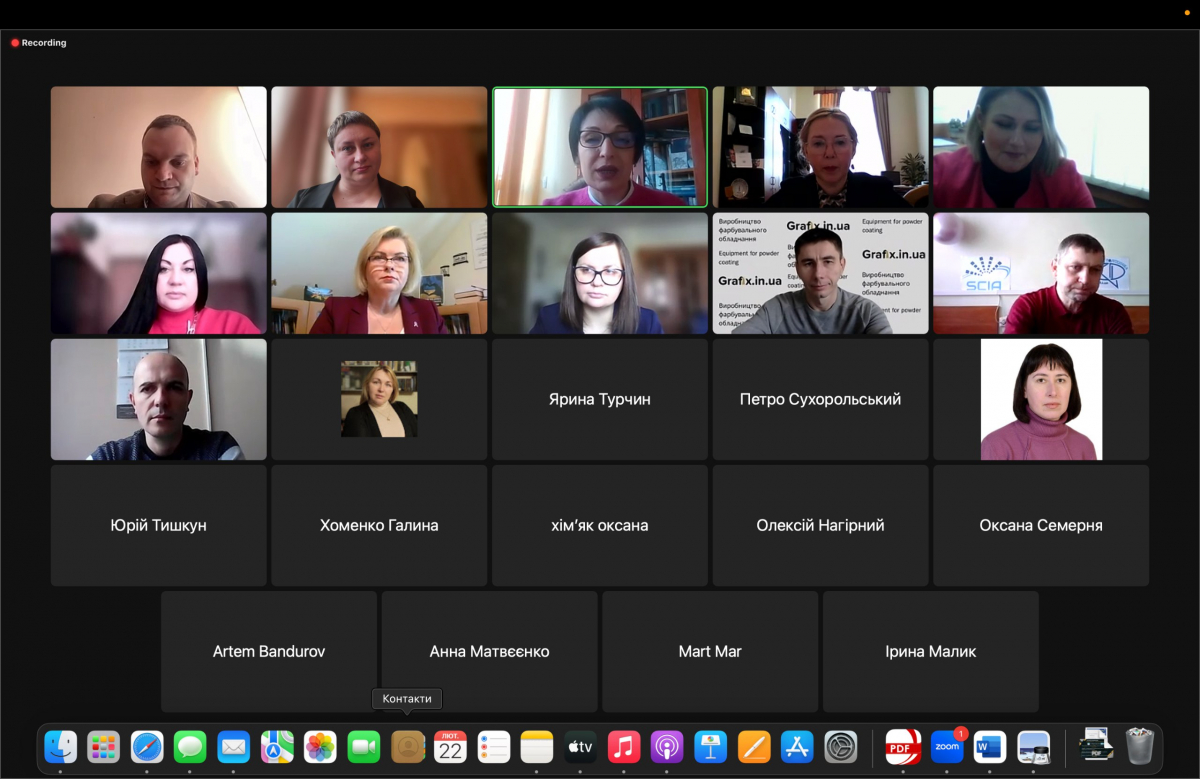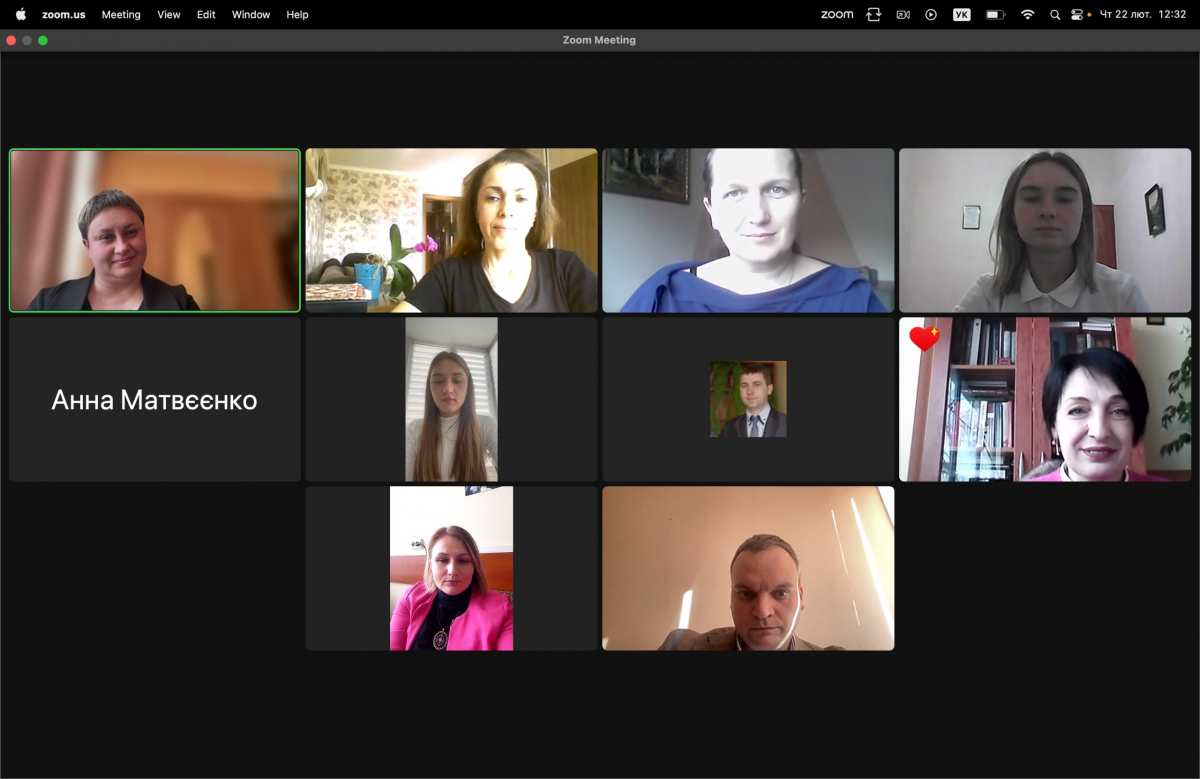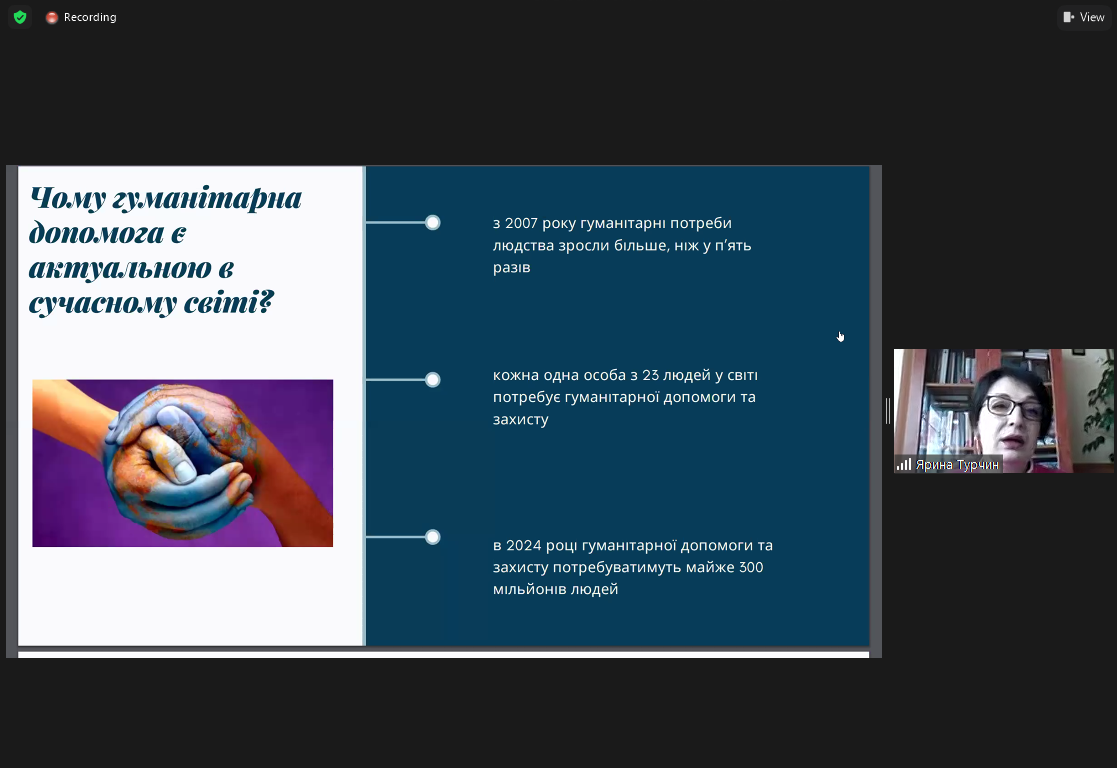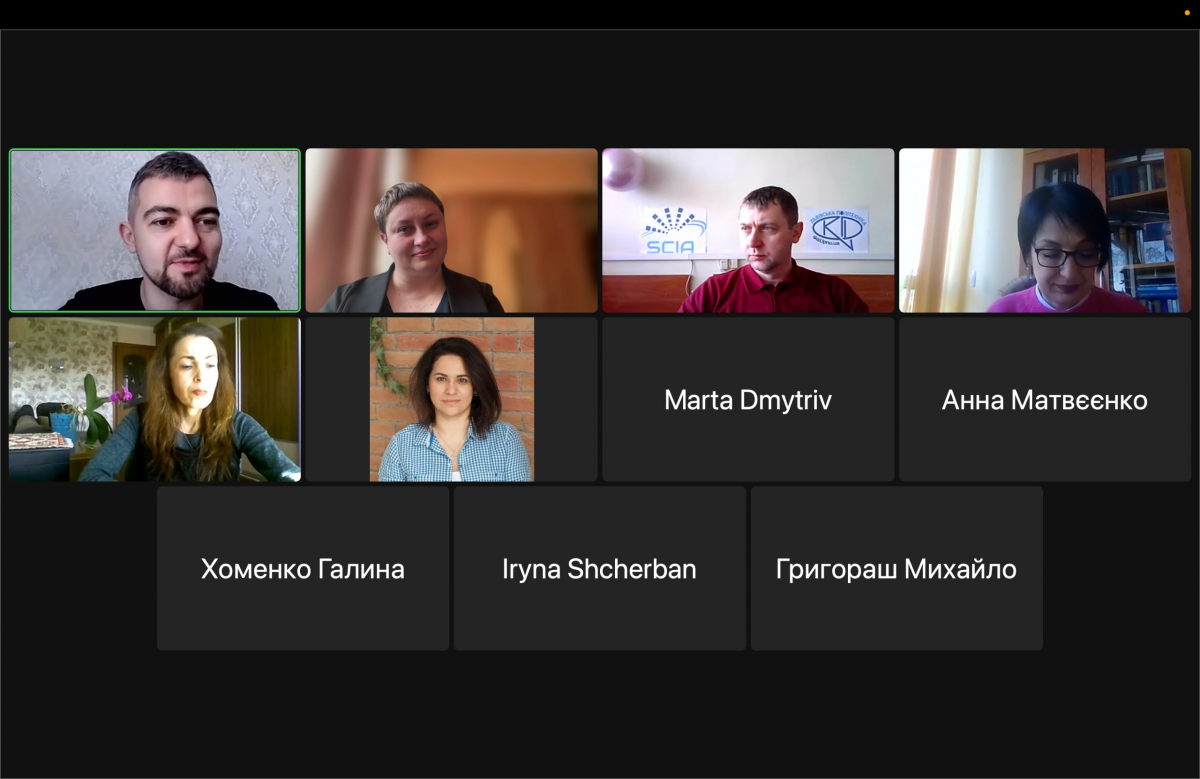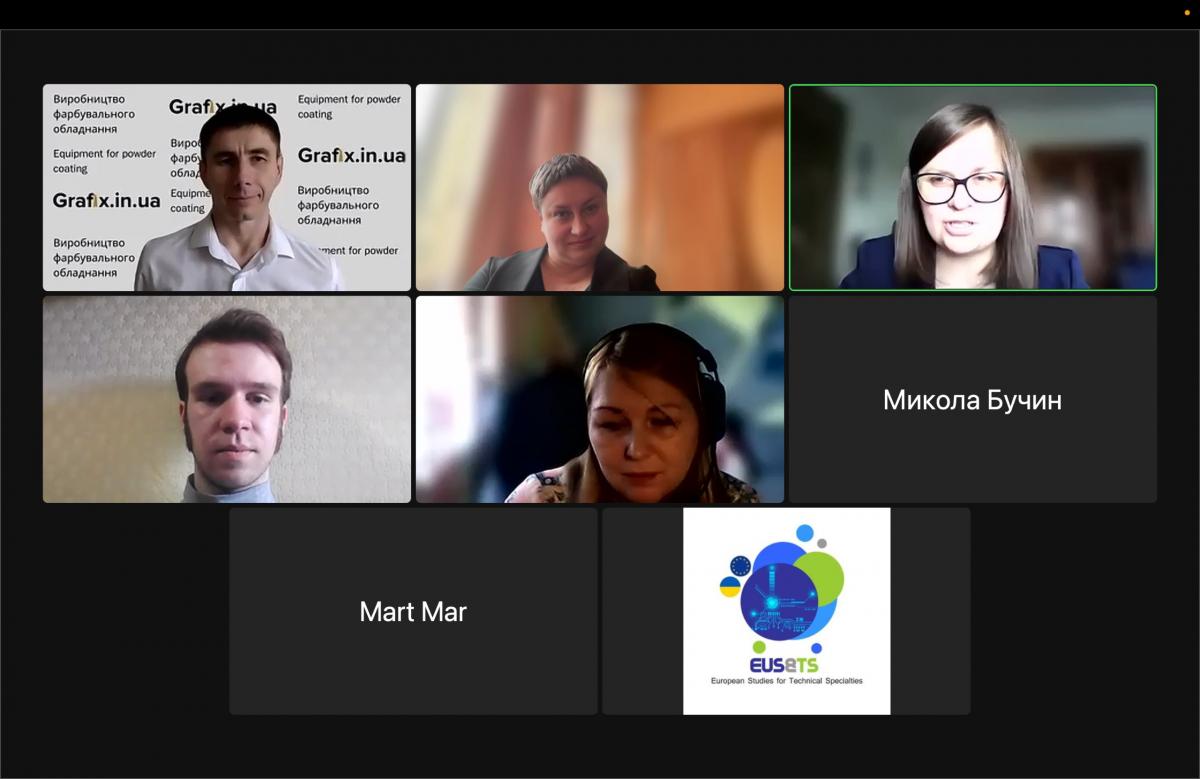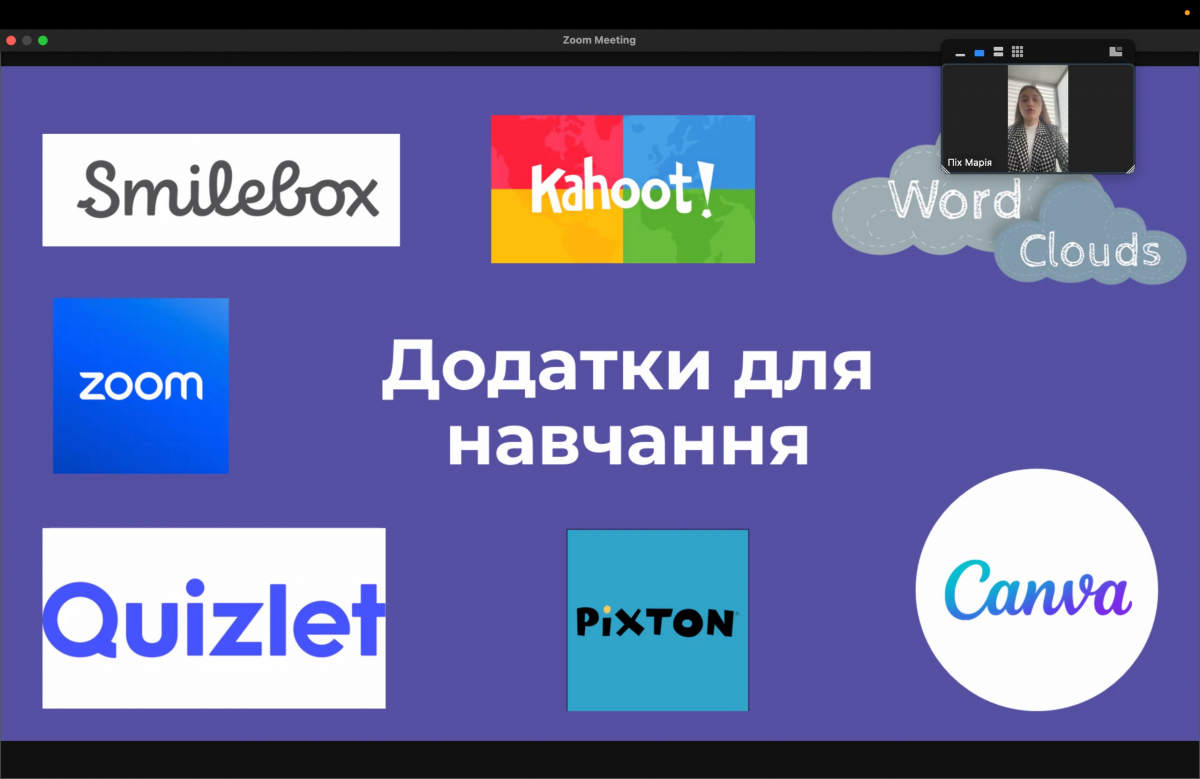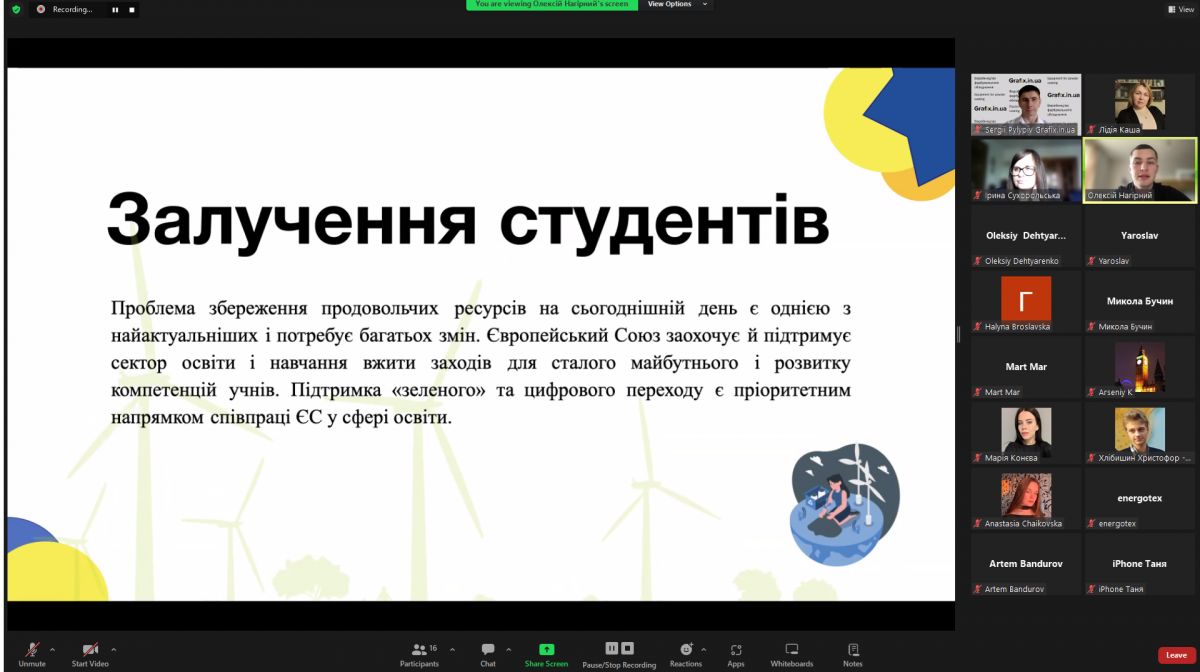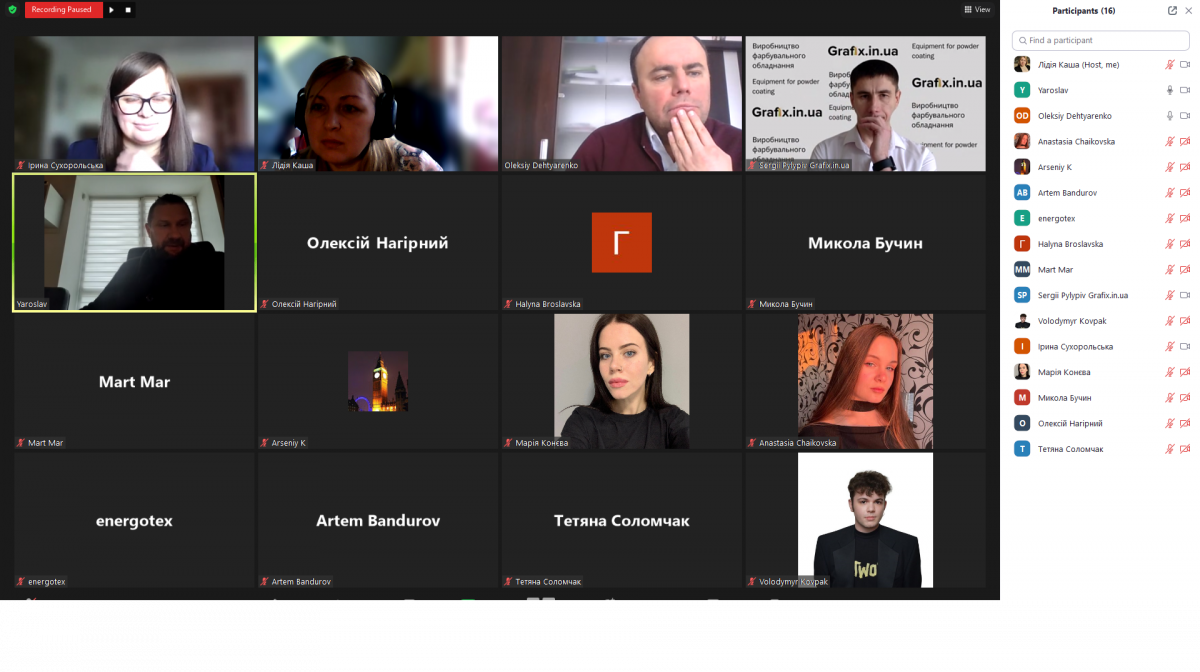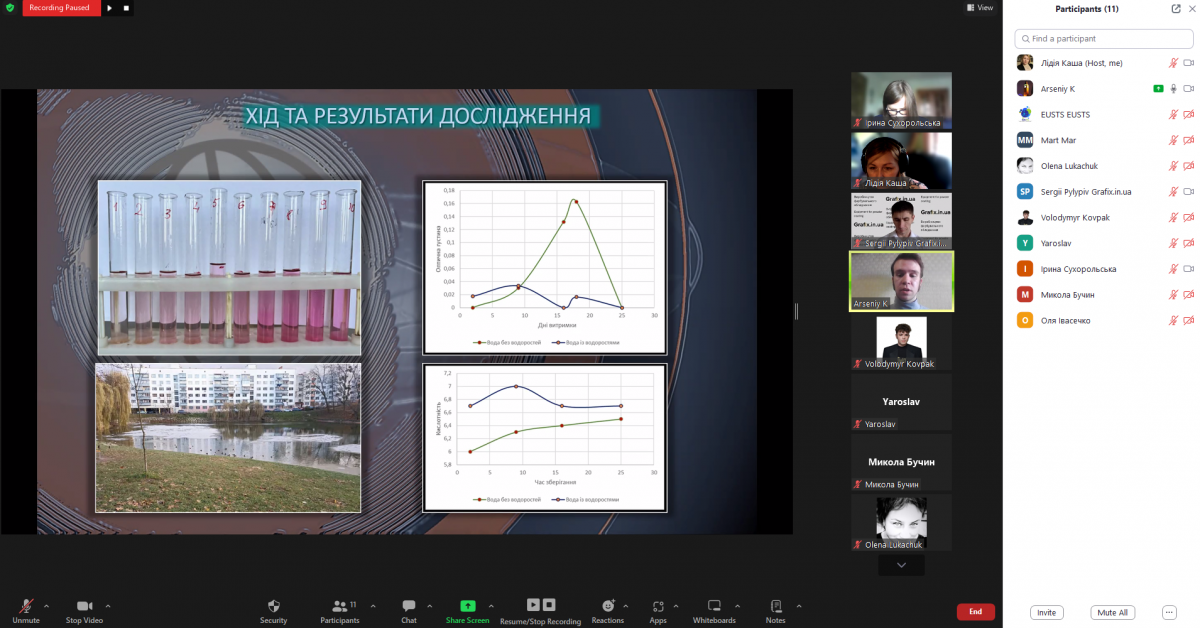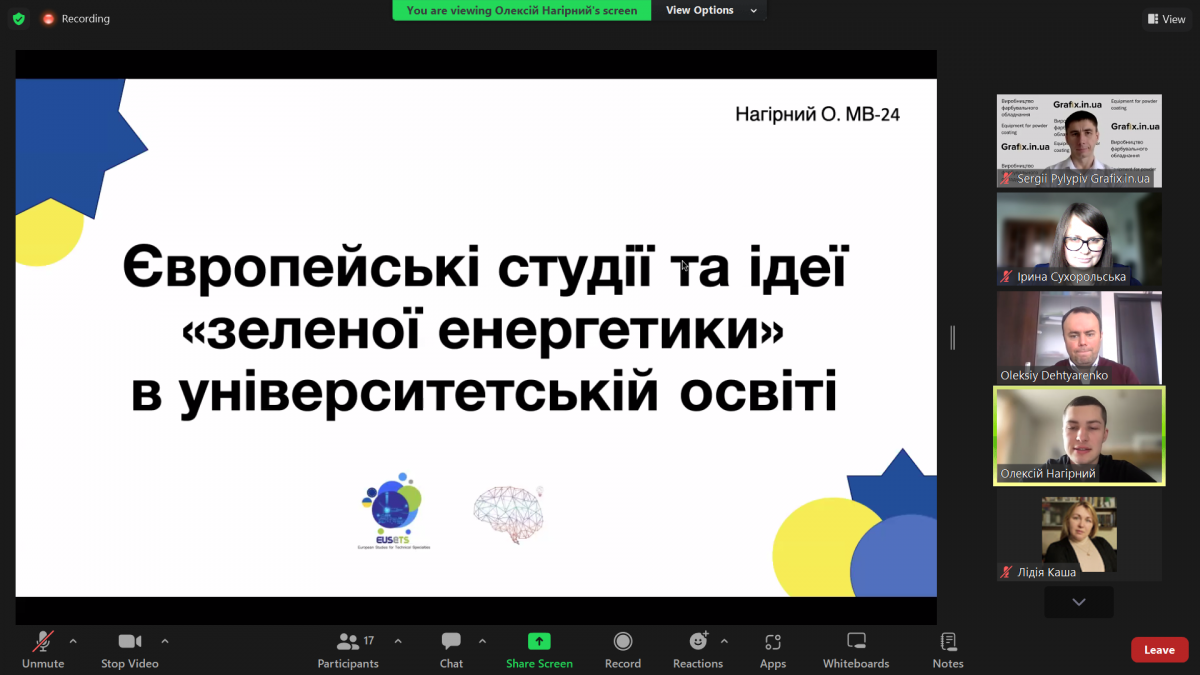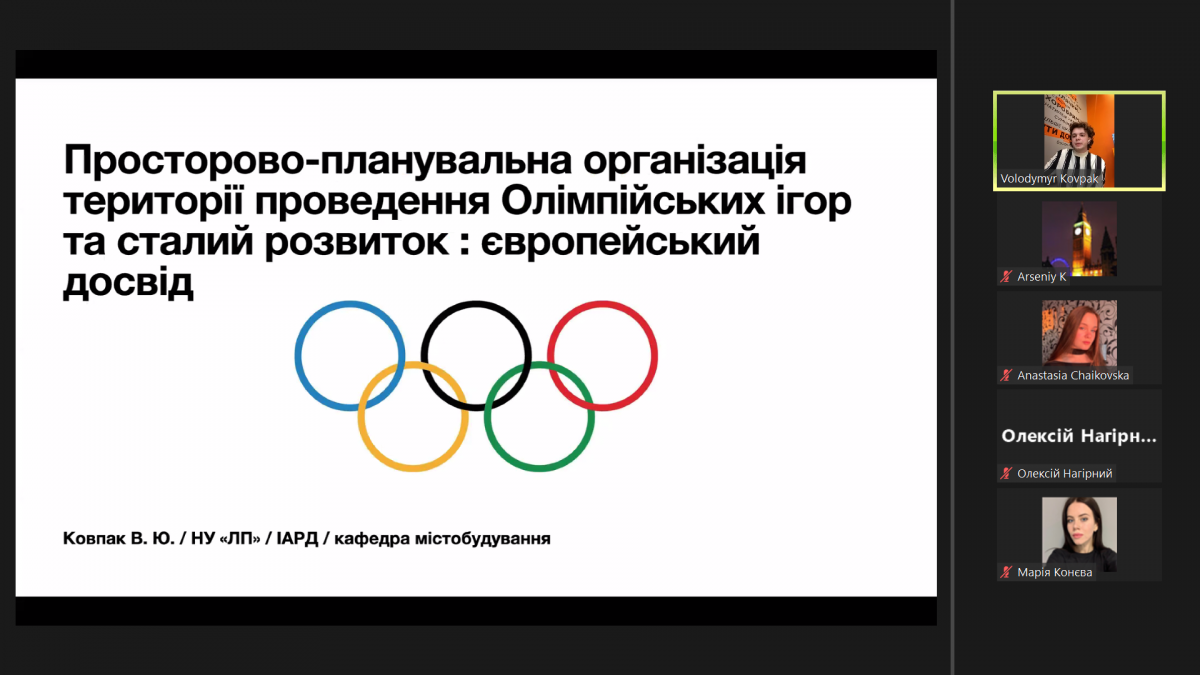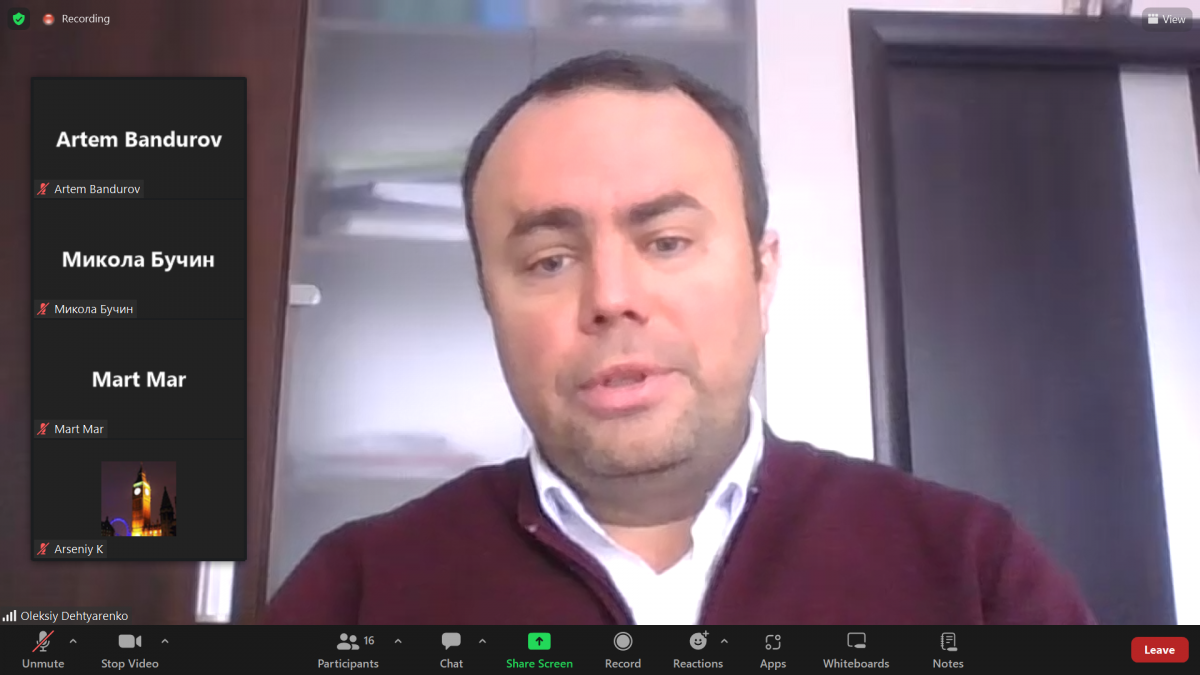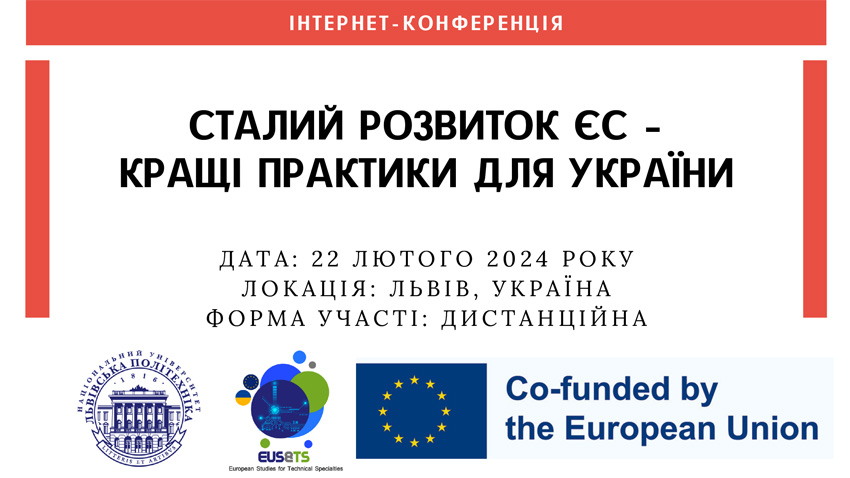On February 22nd, the Lviv Polytechnic National University hosted an online conference “Sustainable Development of the EU: Best Practices for Ukraine” within the framework of the “European Studies for Technical Specialties at Lviv Polytechnic National University (EUSTS)” with the support of the EU Erasmus+ Jean Monnet Program.
The event was held online and brought together almost all regions of Ukraine, from Lviv to Kyiv, Sumy, Uman, Odesa, Kropyvnytskyi, Vinnytsia, etc. A total of 83 people registered to participate in the scientific forum, including students, postgraduates, professors, researchers, teachers, entrepreneurs and government officials. Participants of the event were able to learn about sustainable development practices from experts and beginners from universities, research institutes, vocational educational institutions, schools and enterprises.
The conference began with a welcoming speech by Professor Nataliya Chukhray, Vice-Rector for Education and International Relations of Lviv Polytechnic National University. She noted the scope of the event and the innovativeness of the participants’ reports proposed for discussion, and wished everyone fruitful work.
Teresa Astramowicz-Lake, a professor at the Institute of Political Science at the University of Warmia and Mazury in Olsztyn and a participant in the EU_LEAD program, emphasized the importance of Polish-Ukrainian cooperation between the two institutions. This cooperation has lasted for over 10 years and has yielded many achievements in education and science. She suggested further deepening and development of this partnership.
The online audience was presented with information about the project “European Studies for Technical Specialties at Lviv Polytechnic National University (EUSTS” and the events that take place within its framework and extend throughout Ukraine by the project coordinator, Professor Yaryna Turchyn, who is also the Director of the Institute of Humanities and Social Sciences at Lviv Polytechnic National University.
About the work during the thematic panels: “Digital Single Market: Indicators for Ukraine”, “Sustainable Development and EU Energy: Challenges to Achieving the Global Goals”, “Climate and Environmental Sustainability as a Tool for Achieving Sustainable Development”|,”Sustainable Development and Education in the Context of European Integratio”, including reports by key experts, secret mentor functions, and separate opportunities for the best reports in each section, were presented by Olena Lukachuk, EUSTS project participant, Associate Professor of Political Science and International Relations at Lviv Polytechnic National University.
The section titled “'Digital Single Market: Indicators for Ukraine”, moderated by Olga Ivasechko, Natalia Vovk, and Oleh Tsebenko, addressed the EU’s experience in digital transformation of administrative services, cooperation between Ukraine and the EU in cybersecurity, indicators of digital development in education, ensuring innovative development of Ukraine's economy through integration into the EU digital market, and digitalization of business processes. The work was accompanied by discussions, and the speakers raised problems that required digital solutions.
During the second section titled “Sustainable Development and Energy in the EU: Challenges to Achieving the Global Goals”, moderated by Lidia Kasha, a participant of the EUSTS project, attendees were informed about current energy projects and grant programs by keynote speaker Dmytro Sakaliuk. Mr. Sakaliuk is an energy efficiency expert and coordinator of energy efficiency projects for sustainable community development at the NGO EcoClub. During the discussion, the speakers covered a range of topics including the EU Global Gateway program, restorative priorities for sustainable development, the impact of Russian nuclear blackmail on the renewal of the European security system, the introduction of green energy ideas in university education, and energy problems in residential complexes in Lviv and the surrounding area. The findings of the speakers will be utilized to update Ukraine’s energy security in the current crisis conditions. Local communities will take these findings into account while developing energy infrastructure projects submitted for support by EU grant programs.
The section titled “Sustainable Development and Education in the Context of European Integration” was moderated by Yaryna Turchyn, Oleksandr Markovets, and Olena Lukachuk. During this section, Oleksandr Reminnyi, an expert in educational startups, IT entrepreneur, author of the Startup Kitchen podcast, and lecturer at the Internet of Things program at Lviv Polytechnic National University, shared his experience of working with students. He presented several existing startups that are currently operating and were prepared by student teams under his mentorship. These startups were created by student teams under his guidance. Teachers and students presented practices related to educational innovation and research, including digitalization and STEM education, the use of AI, and student initiatives as a tool for integration into the European educational and scientific space. The presentation also covered the Innovation Hub initiative. This section's work enabled teachers to discuss their teaching practices and receive qualitative feedback, including students' opinions on the feasibility of innovations in teaching European studies at various educational institutions. The presented materials aim to improve the educational process at the represented institutions.
A collection of abstracts is being prepared based on the conference materials, which will be posted on the project’s website, and all speakers will receive certificates of participation in the online conference.
As part of the conference, several presentations were awarded special prizes. In particular, speaker Oleksii Nahirnyi received a personal invitation to participate in the Youth Mentoring Program launched by the Rotary International District 2232 Business Council, and speakers Marta Dmytriv, Maria Pikh, Anastasia Shkil and Anna Matvienko were given the opportunity to participate in the summer youth exchange program and go to Poland or Germany. In return, the work of the moderators of the online conference was recognized with invitations to participate in a special training course by Joffrey Glenn, “Resilience and Change Management in Uncertain Times”.
